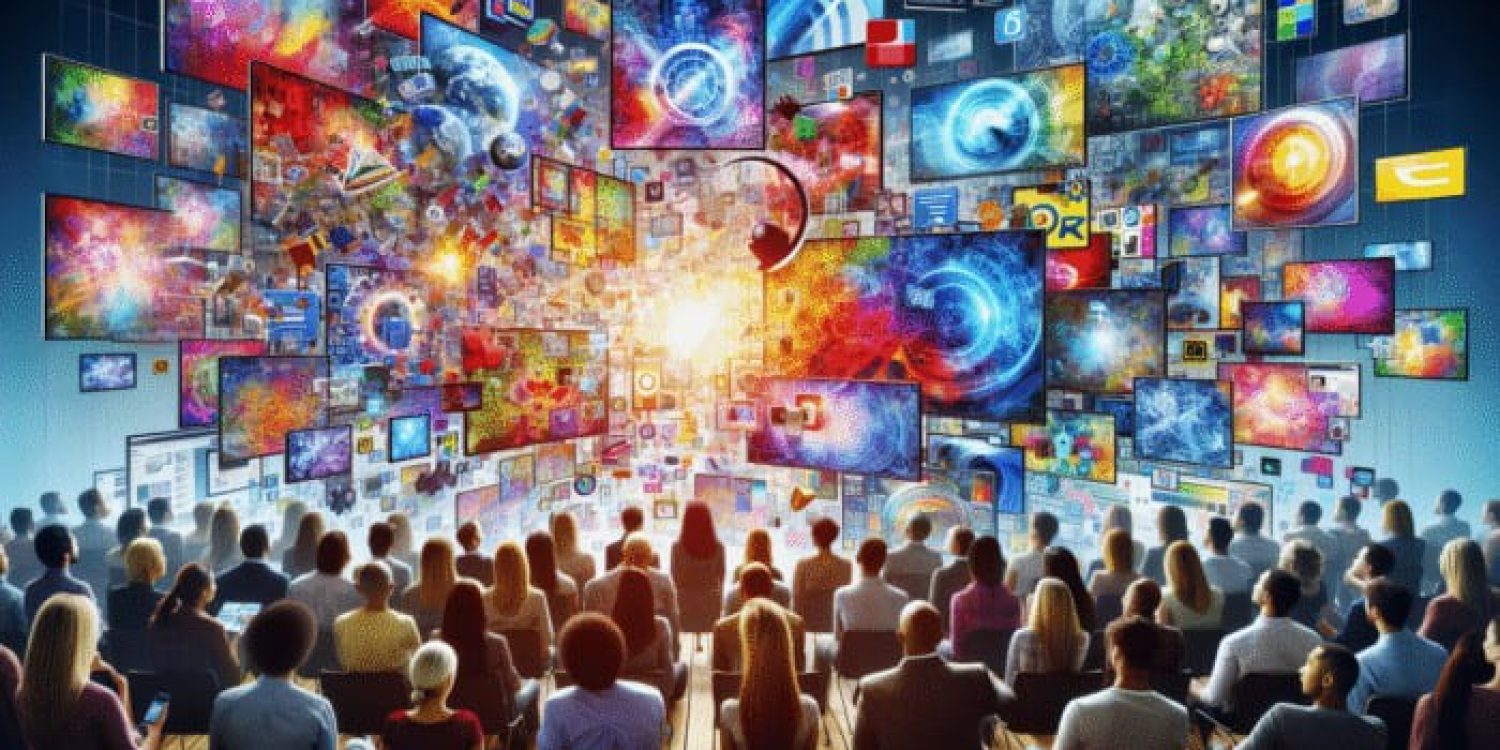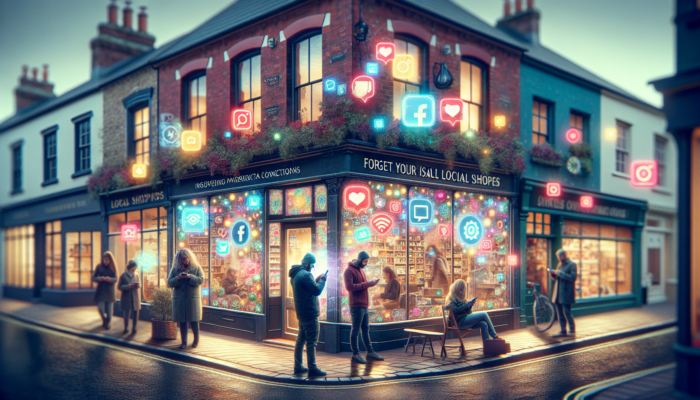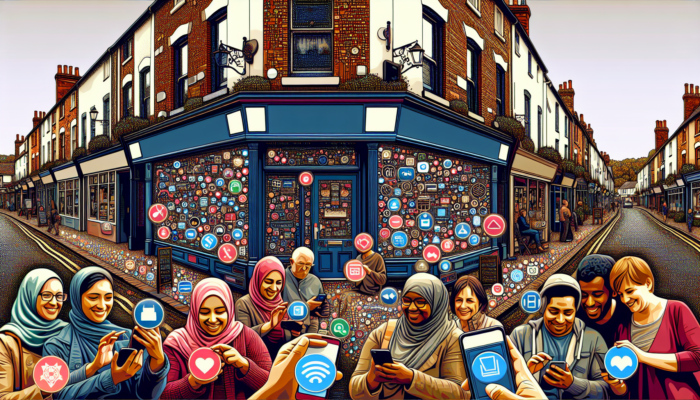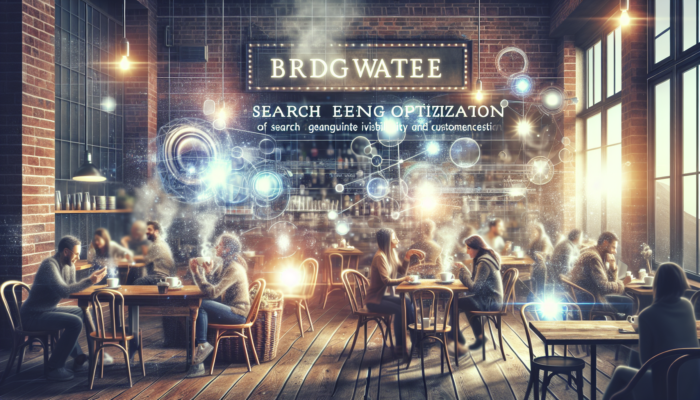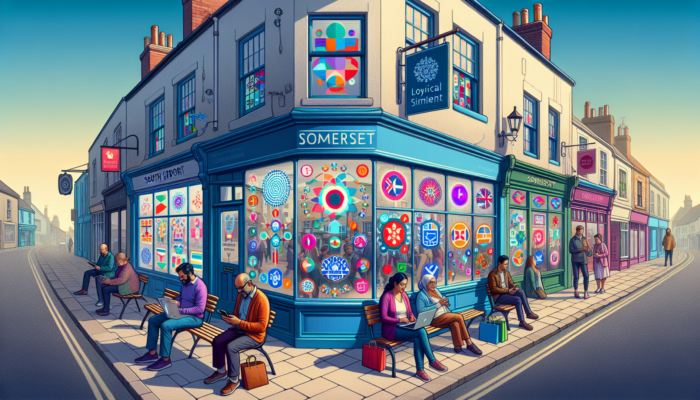Table of Contents
ToggleExplore the Extensive Range of Services Offered by a Premier Media Marketing Agency
Implementing Highly Effective Digital Advertising Strategies
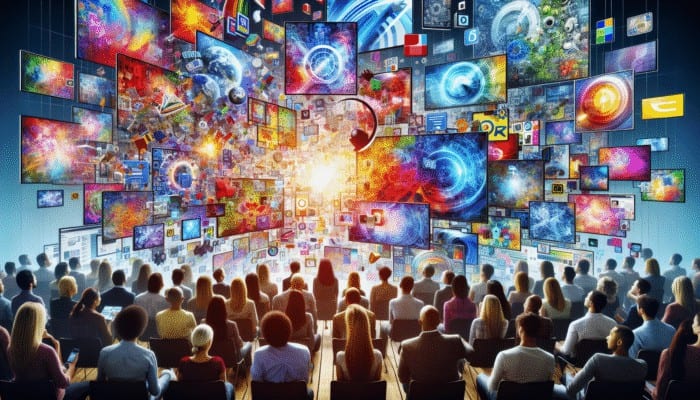
In the contemporary, fast-paced digital environment, where attention spans are diminishing rapidly, adopting a comprehensive approach to digital advertising is essential for amplifying a brand’s visibility and solidifying its market presence. A media marketing agency meticulously designs digital ad campaigns that are not only visually appealing but are also strategically placed across a variety of platforms, significantly enhancing engagement with the target audience. This multifaceted strategy harnesses popular social media platforms, search engines, and display networks, ensuring your brand message reaches the right audience at exactly the right time.
Imagine launching a worldwide campaign coinciding with a significant event, such as the FIFA World Cup, where advertisements flood social media feeds and search results. The heightened visibility achieved during these high-traffic periods can lead to substantial increases in brand recognition and customer engagement. A well-crafted digital advertising strategy taps into demographic insights, ensuring that advertisements resonate deeply with potential customers’ interests and behaviours, ultimately culminating in increased conversions and sales.
By leveraging data analytics, these campaigns can be fine-tuned in real time. This adaptive strategy ensures that if an advertisement fails to meet performance benchmarks, immediate modifications can be implemented. A successful digital advertising plan not only boosts visibility but also builds trust and credibility, both of which are crucial for any brand aiming to thrive in a competitive marketplace.
Crafting Engaging Content for Meaningful Brand Communication
Content is the cornerstone of any successful marketing initiative, breathing life into a brand’s identity while actively engaging its audience. A media marketing agency excels in creating captivating content tailored to various platforms, including blogs, videos, infographics, and podcasts. The goal is to produce materials that not only inform but also resonate deeply with the audience on an emotional level, sparking a desire for action.
Consider the various ways in which content can be leveraged. For example, a travel agency might publish immersive blog posts filled with breathtaking visuals, showcasing exotic destinations. This strategy not only enriches the reader’s experience but also positions the brand as a credible authority within the travel industry. By weaving storytelling into the fabric of content creation, brands can foster deeper connections with their audience, significantly elevating the chances of engagement and conversion.
Additionally, the rise of video content cannot be underestimated. Platforms such as YouTube and TikTok have transformed how audiences consume information, prioritising engaging visual narratives. A media marketing agency that embraces diverse content formats will stand out, ensuring it effectively captures attention across global markets.
Implementing Strategic Social Media Management for Enhanced Brand Visibility
With billions of users actively interacting across various social media platforms, effectively managing a brand’s social media presence is imperative. A media marketing agency offers strategic social media management that extends beyond mere posting. This encompasses actively engaging with audiences, swiftly responding to comments, and nurturing a community around the brand.
By understanding the nuances of each platform, from Instagram’s visually-driven approach to LinkedIn’s professional atmosphere, these agencies can customise their strategies to bolster brand loyalty and outreach. Campaigns can be designed to promote brand events, product launches, or social initiatives, leveraging trending topics to elevate visibility.
Moreover, analysing social media performance provides invaluable insights into audience preferences, enabling brands to refine their strategies accordingly. This ongoing engagement and adaptability foster a loyal customer base, which is essential for long-term success.
Comprehensive SEO Strategies for Enhanced Online Visibility

In the vast landscape of the internet, achieving distinction requires a strategic approach to search engine optimisation (SEO). A skilled media marketing agency employs comprehensive SEO strategies to elevate a brand’s visibility within search engine results. This process involves meticulous keyword research, content optimisation, and technical enhancements to ensure that your website ranks higher, attracting organic traffic.
An effective SEO strategy goes beyond mere keywords; it encompasses the entire user experience. This includes website speed, mobile responsiveness, and engaging content that effectively addresses users’ queries and concerns. For instance, a brand that offers sustainable products might optimise its website with keywords reflecting eco-conscious values, appealing to a global audience eager for sustainable solutions.
By utilising analytics tools, these agencies can monitor performance and adjust strategies based on real-time data. This enables continuous improvement, ensuring that the brand remains competitive and relevant in an ever-evolving digital landscape.
Crafting Targeted Email Marketing Campaigns for Enhanced Customer Engagement
Despite the rise of social media, email remains one of the most powerful marketing tools available. A media marketing agency designs and executes targeted email campaigns that nurture leads, keep customers informed, and foster enduring relationships. These campaigns can be personalised, addressing recipients by name and tailoring content based on their interactions with the brand.
By employing effective segmentation, brands can send customised messages to different audience groups, ensuring that content is timely and relevant. For instance, a fashion retailer may dispatch promotional emails highlighting seasonal collections to previous customers, encouraging repeat purchases. By meticulously tracking open and click-through rates, these agencies refine their strategies to enhance engagement and drive conversions.
Additionally, leveraging automation tools facilitates timely follow-ups, reminders, and personalised recommendations. This approach not only boosts customer retention but also creates a seamless experience that resonates with audiences globally.
Proven Strategies for Achieving Marketing Success
Developing Targeted Campaigns that Resonate with Specific Audiences
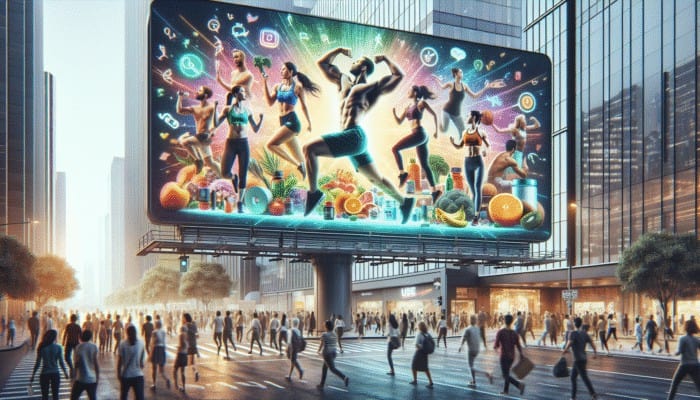
Creating campaigns that genuinely resonate with target audiences starts with a comprehensive understanding of their specific needs and preferences. A media marketing agency excels in crafting targeted campaigns that speak directly to these demographics, ensuring maximum impact. By conducting thorough market research and leveraging data analytics, these agencies can identify key audience segments and tailor their messaging accordingly.
For instance, a global health brand may initiate a campaign explicitly aimed at fitness enthusiasts, highlighting the benefits of a new supplement. By utilising platforms frequented by this audience, such as fitness blogs and Instagram influencers, the campaign can effectively reach potential customers. This targeted approach not only amplifies the likelihood of engagement but also enhances brand loyalty, as consumers feel acknowledged and valued.
Furthermore, timing is critical for the success of campaigns. Aligning marketing initiatives with significant events, such as holidays or cultural celebrations, can magnify the reach of the message. By tapping into the existing excitement and sentiment surrounding these occasions, brands can make their campaigns more impactful and memorable.
Making Data-Driven Decisions for More Effective Marketing
In an age characterised by an abundance of data, leveraging it effectively can significantly influence a brand’s success or stagnation. A media marketing agency adopts a data-driven methodology, employing analytics to inform marketing decisions and optimise performance. This involves tracking key performance indicators (KPIs), understanding audience behaviour, and adapting strategies based on real-time insights.
For example, if a campaign is underperforming, data analysis can reveal potential areas for improvement, whether it be the choice of platform or the messaging itself. Brands that harness this information can pivot swiftly, making informed decisions that enhance their marketing efforts and optimise their budget allocation.
Moreover, A/B testing serves as a powerful tool within this framework, enabling brands to experiment with different approaches to determine which resonates most effectively with their audience. By continuously refining strategies based on empirical evidence, companies can create an increasingly effective marketing environment, driving growth and engagement.
Fostering a Commitment to Continuous Improvement for Marketing Excellence
The path to marketing success is not static; it requires ongoing refinement and adaptation. A media marketing agency prioritises continuous improvement, regularly analysing performance metrics to ensure sustained success. This iterative process involves reviewing previous campaigns, identifying what worked and what didn’t, and applying these insights to future initiatives.
By cultivating a culture of feedback and agility, brands can remain relevant in a rapidly evolving market. This may necessitate adopting new technologies, shifting towards emerging social media platforms, or even tapping into current trends that resonate with consumers.
A commitment to continuous improvement not only enhances performance but also builds trust with consumers. When a brand demonstrates its willingness to listen and adapt, it fosters a loyal customer base that appreciates its responsiveness and dedication to quality.
Success Stories Showcasing Our Clients’ Achievements
Case Study 1: Revolutionising a Tech Startup’s Market Position
One brand that achieved phenomenal success through the strategies of a media marketing agency is an emerging tech startup. Confronted with fierce competition in the smart home industry, they aimed to expand their market share. The company implemented targeted digital advertising and rich content creation, launching an engaging campaign that highlighted the unique attributes of their innovative products.
Through a series of carefully crafted social media advertisements and insightful blog posts, the startup generated significant buzz. They employed data-driven strategies to optimise their campaigns in real time, resulting in an impressive 40% increase in website traffic within just three months.
This case exemplifies the power of focused strategies in elevating a brand’s presence within a saturated market. By utilising a combination of compelling content and precise targeting, the startup not only expanded its market share but also solidified its position as a credible player in the tech sector.
Case Study 2: Enhancing a Prestigious Hospitality Brand’s Marketing Efforts
Another noteworthy success story involves a renowned hospitality brand that sought to elevate its marketing capabilities. By partnering with a media marketing agency, the brand embraced a comprehensive approach that integrated SEO optimisation, social media management, and email marketing.
The outcomes were remarkable. Within six months, their search engine rankings improved significantly, leading to a substantial uptick in direct bookings. The email campaigns effectively nurtured existing customers and encouraged their return, while engaging social media content showcased stunning visuals of their properties, capturing the attention of potential guests.
This well-rounded strategy not only met the brand’s marketing objectives but also deepened customer engagement. By crafting a cohesive narrative that spanned multiple channels, the hospitality brand successfully reinforced its market position and attracted a diverse clientele from around the globe.
Case Study 3: Innovative Marketing Solutions for a Fashion Retailer
Lastly, a fashion retailer experienced transformative growth through the implementation of innovative marketing strategies. By partnering with a media marketing agency, they integrated cutting-edge technologies, such as augmented reality (AR), to enhance customer experiences. This initiative enabled consumers to virtually try on outfits prior to making a purchase, creating an interactive shopping journey.
The campaign’s success was evident in a striking increase in online sales, with customers reporting heightened satisfaction levels. The integration of AR technology not only elevated the shopping experience but also attracted widespread media attention, significantly enhancing brand recognition.
This case illustrates the importance of embracing innovation in marketing. By incorporating advanced technologies and tailoring experiences to meet consumer expectations, brands can achieve substantial growth and visibility in a competitive marketplace.
Leveraging Innovative Technologies for Marketing Success
Utilising AI and Machine Learning for Predictive Marketing Insights
Artificial intelligence (AI) and machine learning have evolved far beyond mere buzzwords; they are transformative technologies that have revolutionised the marketing landscape. A media marketing agency harnesses these technologies to anticipate trends and personalise marketing efforts effectively. By analysing vast datasets, AI can uncover patterns in consumer behaviour, allowing brands to customise their messaging and offerings accordingly.
For instance, AI algorithms can identify which products are likely to resonate with individual customers based on their purchasing history and preferences. This level of personalisation not only enhances the customer experience but also significantly increases the likelihood of conversions. Brands employing AI-driven strategies can maintain a competitive edge by quickly adapting to shifting market conditions and consumer preferences.
Furthermore, machine learning algorithms continuously evolve, learning from every interaction and refining their predictive capabilities. This ensures that marketing strategies remain relevant and effective, driving engagement and fostering consumer loyalty.
Leveraging Advanced Analytics for Data-Driven Marketing Decisions
In the realm of marketing, knowledge is power. Advanced analytics tools provide invaluable insights into consumer behaviour, empowering brands to make informed decisions. A media marketing agency employs these tools to track performance metrics, segment audiences, and optimise campaign effectiveness.
By implementing predictive analytics, brands can forecast future trends and consumer needs, allowing them to stay ahead of the curve. For instance, a retailer may analyse historical sales data to predict which products will be in demand during an upcoming season. This foresight can guide inventory decisions and marketing strategies, ensuring that the brand is well-positioned to meet consumer expectations.
Moreover, advanced analytics facilitate A/B testing and optimisation, enabling brands to experiment with different approaches and refine their strategies based on real-time results. This iterative process fosters continuous improvement and enhances the overall effectiveness of marketing efforts.
Creating Immersive Consumer Experiences through Virtual Reality
Virtual reality (VR) is emerging as a game-changer in the marketing sector, offering immersive experiences that captivate audiences. A media marketing agency can utilise VR to craft engaging campaigns that transport consumers into a brand’s universe. Imagine a real estate company offering virtual tours of properties, allowing potential buyers to explore homes from the comfort of their living rooms.
This immersive strategy not only enhances the customer experience but also establishes a deeper emotional connection with the brand. By providing an engaging and interactive way to experience products or services, brands can foster loyalty and encourage repeat business.
Additionally, VR can be employed for training and internal marketing purposes, enabling employees to engage with products in a simulated environment. As technology continues to evolve, the integration of VR into marketing strategies will become increasingly essential for capturing consumer attention and driving engagement.
Enhancing Customer Engagement Through Augmented Reality
Augmented reality (AR) represents another groundbreaking technology that has significantly impacted the marketing domain. By overlaying digital information onto the real world, AR creates interactive experiences that enthral consumers. A media marketing agency can leverage AR to boost customer engagement, allowing users to visualise products in their environments before making purchasing decisions.
For example, a furniture retailer might develop an AR application enabling customers to see how a piece of furniture would appear in their home prior to purchase. This interactive experience not only enriches the shopping journey but also reduces the likelihood of returns, as customers are empowered to make more informed choices.
As AR technology becomes increasingly accessible, its potential applications in marketing will continue to expand. Brands that adopt AR can differentiate themselves and offer unique experiences that resonate with tech-savvy consumers.
Building Trust Through Blockchain Technology
Blockchain technology is reshaping various industries, including marketing. By implementing blockchain for secure and transparent transactions, a media marketing agency can revolutionise trust and efficiency in marketing operations. This technology guarantees that data is verifiable and tamper-proof, which is crucial in an age where data privacy concerns are paramount.
Brands can utilise blockchain to ensure transparent communication with customers regarding data usage and consent. This approach fosters trust, as consumers are increasingly aware of their data rights. Moreover, blockchain can streamline processes such as payments and contracts, enhancing efficiency across marketing operations.
As the demand for transparency and accountability rises, brands that embrace blockchain technology will position themselves as leaders in this evolving landscape. By prioritising security and trustworthiness, they can cultivate enduring relationships with consumers.
Establishing a Robust Brand Identity
Crafting Compelling and Authentic Brand Messaging
Developing a clear and consistent brand message is essential for establishing a strong identity in a competitive marketplace. A media marketing agency focuses on formulating messaging that reflects a brand’s core values and mission, ensuring it resonates with its target audience. This process involves understanding the brand’s unique selling propositions and effectively communicating them across multiple platforms.
For instance, a luxury brand might craft its messaging around themes of exclusivity and craftsmanship. Conversely, a sustainable brand may emphasise environmentally friendly practices and ethical sourcing. By aligning messaging with audience values, brands can forge authentic connections that foster loyalty.
Moreover, consistency is key. Whether through social media, website content, or advertising, maintaining a coherent message reinforces brand recognition and strengthens consumer trust. Brands that effectively convey their values and mission will stand out, capturing the attention of potential customers.
Creating a Distinctive and Memorable Visual Identity
The visual identity of a brand plays a pivotal role in shaping how consumers perceive it. A media marketing agency focuses on designing logos, colour schemes, and visual elements that enhance brand recognition and appeal. This visual representation often serves as the first interaction consumers have with a brand, making it imperative that it conveys the right message.
For example, a technology company might opt for a sleek, modern logo that conveys innovation and forward-thinking. In contrast, a traditional brand may choose a classic design to evoke feelings of trust and reliability. The choice of colours and typography can also significantly influence consumer emotions and perceptions.
Furthermore, a strong visual identity extends beyond the logo; it encompasses packaging, website design, and social media graphics. By ensuring visual consistency across all touchpoints, brands can reinforce their identity and create a lasting impression on consumers.
Engaging Audiences Through Meaningful Connections
Effectively engaging and retaining an audience requires strategies that foster interaction and meaningful connections. A media marketing agency develops content and campaigns that resonate with consumers, encouraging active participation. This can include interactive polls, contests, and user-generated content that invites audiences to share their experiences.
Creating a sense of community around a brand is crucial for long-term success. Brands that invite audience engagement demonstrate that they value their customers’ input and experiences. For instance, a beauty brand might launch a campaign inviting customers to showcase their makeup looks using a specific product, reinforcing brand loyalty through active participation.
Additionally, personalised communication enhances audience engagement. Brands that address customers by name and tailor messages based on their preferences cultivate a more intimate connection. This level of engagement nurtures trust and encourages repeat interactions, ultimately driving brand loyalty.
Emerging Trends Shaping the Future of Marketing
Prioritising Personalisation in Marketing Strategies
As consumers become inundated with marketing messages, the demand for personalised experiences continues to rise. Brands that prioritise personalisation will undoubtedly shape the future of marketing strategies. A media marketing agency can utilise advanced data analytics to tailor content, offers, and messages to individual preferences.
For example, an online retailer might employ algorithms to recommend products based on past purchases and browsing behaviour. This bespoke approach not only enhances the shopping experience but also increases conversion rates, as customers are presented with options that align with their interests and preferences.
Furthermore, personalisation extends beyond product recommendations. Brands can create tailored email campaigns that cater to individual customer needs, fostering a deeper connection. As technology advances, the capacity to personalise marketing efforts will become increasingly sophisticated, allowing brands to engage customers on a more meaningful level.
Integrating Sustainability into Marketing Practices
In an increasingly eco-conscious world, embedding sustainable practices into marketing is no longer optional; it has become essential. Consumers are more aware of their environmental impact and actively seek out brands that align with their values. A media marketing agency can assist brands in developing sustainable marketing strategies that resonate with their target audience.
This may involve promoting eco-friendly products, highlighting sustainable sourcing practices, or engaging in corporate social responsibility initiatives. By positioning themselves as environmentally responsible, brands can attract a loyal customer base that values sustainability.
Moreover, transparency in sustainability efforts is critical. Brands that openly communicate their practices and progress will cultivate trust and credibility. As sustainability becomes a defining factor in consumer decision-making, brands that embrace this trend will gain a competitive advantage.
Harnessing Interactive Content for Greater Engagement
Interactive content is on the rise, and its impact on audience engagement is undeniable. A media marketing agency can capitalise on this trend by creating immersive experiences that captivate consumers. This includes quizzes, polls, and interactive videos that invite audiences to participate actively.
By encouraging interaction, brands can create a more engaging experience that resonates with consumers. For instance, a fitness brand might develop a quiz that helps users determine their ideal workout routine, providing personalised recommendations based on their responses. This not only enhances the user experience but also fosters a sense of connection with the brand.
Furthermore, interactive content can drive traffic and increase time spent on websites, positively influencing SEO efforts. As consumers increasingly seek engaging experiences, brands that embrace interactive content will distinguish themselves in a crowded marketplace.
Transforming Marketing Strategies with Artificial Intelligence
The integration of artificial intelligence in marketing is revolutionising strategies on a global scale. A media marketing agency can leverage AI to enhance marketing efficiency, streamline processes, and personalise customer experiences on a large scale. By analysing data patterns, AI can optimise campaigns, predict customer behaviour, and automate routine tasks.
For instance, AI-powered chatbots can provide instant customer support, addressing queries and resolving issues in real time. This not only boosts customer satisfaction but also frees up human resources for more complex tasks. As AI technology continues to progress, its applications in marketing will become increasingly sophisticated, enhancing efficiency and effectiveness.
Moreover, AI-driven insights empower brands to make informed decisions, adapting strategies based on real-time data. Companies that embrace AI will gain a competitive edge, positioning themselves as leaders in innovation and customer experience.
Implementing Omnichannel Marketing for a Seamless Customer Journey
In a world where consumers interact with brands across multiple touchpoints, omnichannel marketing is crucial for delivering a consistent customer experience. A media marketing agency can devise strategies that integrate various channels, including social media, email, websites, and physical storefronts.
By ensuring a unified brand message and experience across all platforms, brands can enhance customer satisfaction and loyalty. For example, a consumer may discover a product via social media, research it on a website, and ultimately purchase it in a store. Each touchpoint should reinforce the brand’s identity and values, thereby creating a cohesive and consistent experience.
As consumer expectations continue to evolve, brands that successfully implement omnichannel strategies will flourish. By prioritising a seamless journey, they can build lasting relationships and drive long-term success.
Frequently Asked Questions (FAQs)
What services are offered by a media marketing agency?
A media marketing agency provides a comprehensive range of services, including digital advertising, content creation, social media management, SEO optimisation, and email marketing, all designed to enhance brand visibility and audience engagement.
How can digital advertising benefit my business?
Digital advertising boosts brand visibility and engagement by effectively reaching targeted audiences across various online platforms. It allows for real-time adjustments, maximising the effectiveness of campaigns and ensuring optimal performance.
What role does content creation play in marketing?
Content creation is vital for engaging audiences and establishing a strong brand identity. It enables brands to communicate their values and connect with consumers through informative and compelling materials, ultimately driving engagement and conversions.
Why is social media management important?
Effective social media management enhances brand loyalty and reach by actively engaging with audiences, responding to comments, and creating a sense of community around the brand, thus cultivating a loyal customer base.
How does SEO optimisation improve my website’s performance?
SEO optimisation improves your website’s visibility in search engine results through strategic keyword usage and content optimisation, attracting more organic traffic and potential customers and ultimately increasing conversion rates.
What is the significance of targeted campaigns?
Targeted campaigns customise marketing efforts to specific audience segments, enhancing the likelihood of engagement and conversions by effectively addressing their unique needs and preferences.
How can data-driven decisions enhance marketing strategies?
Data-driven decisions empower brands to utilise analytics to inform marketing strategies, optimising performance and enabling informed adjustments based on real-time insights, leading to more effective campaigns.
What are the benefits of personalisation in marketing?
Personalisation increases customer engagement and conversion rates by tailoring content and offers to individual preferences, thereby enhancing the overall user experience and fostering loyalty.
How does augmented reality impact customer engagement?
Augmented reality offers interactive experiences that enhance customer engagement, allowing consumers to visualise products in their environment prior to making a purchase, thereby reducing return rates.
What are the future marketing trends?
Future marketing trends will focus on personalisation, sustainability, interactive content, AI integration, and omnichannel strategies, all aimed at enhancing customer experiences and driving long-term brand loyalty.
Connect with us on Facebook!
The post Media Marketing Company: Your Ultimate Solution appeared first on Ezi Gold.
